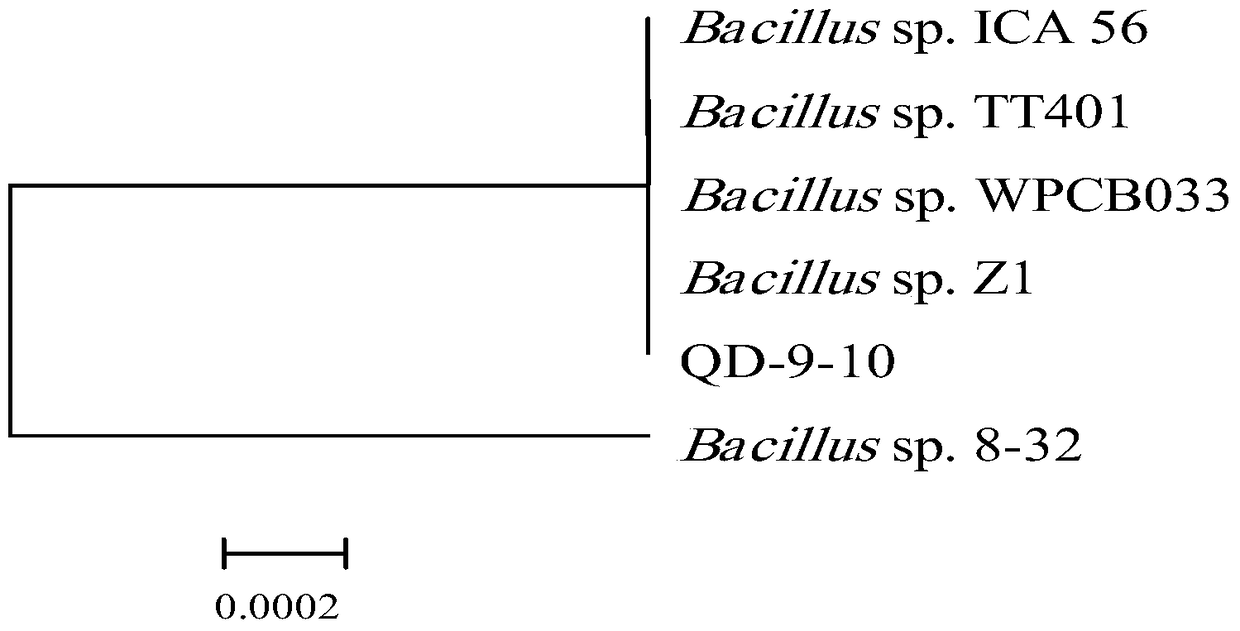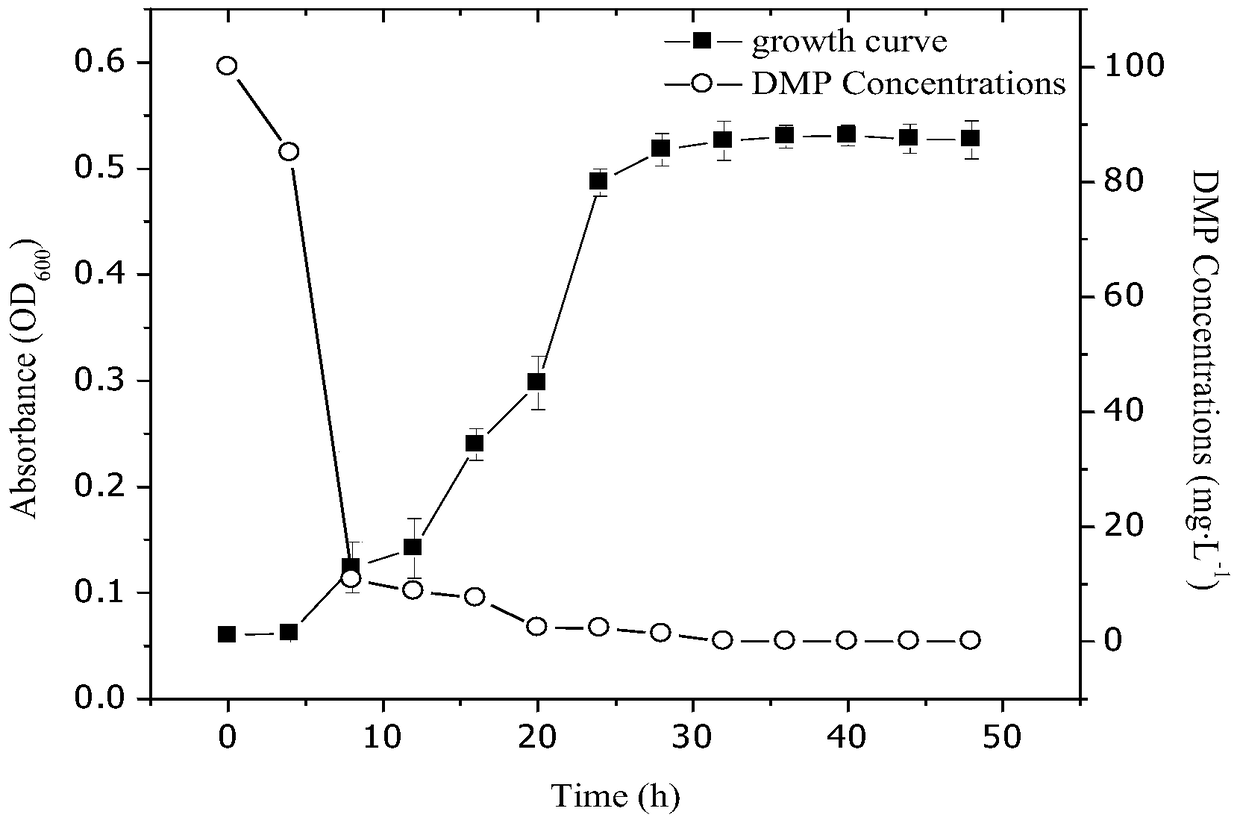A Bacillus strain capable of efficiently degrading dmp, its cultivation method and its application in remediating soil paes pollution
A technology of Bacillus sp. and Bacillus subtilis, applied in the field of microorganisms, can solve problems such as affecting the function of black soil ecosystem, threatening black soil soil fertility and food production, changing black soil respiration and enzymatic activity and metabolic characteristics, etc.
- Summary
- Abstract
- Description
- Claims
- Application Information
AI Technical Summary
Problems solved by technology
Method used
Image
Examples
Embodiment 1
[0023] Example 1 Isolation of bacterial strain QD-9-10 and its application in degrading PAEs
[0024] 1 Materials and methods
[0025] 1.1 Test materials and medium
[0026] Dimethyl phthalate (DMP), diethyl phthalate (DEP), dibutyl phthalate (DBP), di-n-octyl phthalate (DOP), di-phthalate Isooctyl ester (DEHP), and diisooctyl phthalate (DIOP), methanol, ethyl acetate, and hexane, all chemicals and solvents were analytical reagents, purchased from Guangfu Institute of Fine Chemicals, Tianjin.
[0027] Basic mineral salt (MSM) medium: K 2 HPO 4 12H 2 O 1.0g, KH 2 PO 4 1.0g, NH 4 Cl 0.8g, NaCl 1.0g, MgSO 4 ·7H 2 O 0.5g, CaCl 2 0.006g, FeSO 4 ·7H 2 O 0.02g, trace element stock solution (MnSO 4 ·H 2 O0.1g, ZnSO 4 ·7H 2 O 0.12g, H 3 BO 3 0.07g, Na 2 MoO 4 ·H 2 O 0.04g, CuSO 4 ·5H 2 O 0.02g, CoCl 2 0.04g, distilled water to make up to 1000ml) 2mL, distilled water to make up to 1000ml, pH 7.0.
[0028] LB medium: peptone 10.0g, yeast powder 5.0g, sodium ch...
PUM
 Login to View More
Login to View More Abstract
Description
Claims
Application Information
 Login to View More
Login to View More - R&D
- Intellectual Property
- Life Sciences
- Materials
- Tech Scout
- Unparalleled Data Quality
- Higher Quality Content
- 60% Fewer Hallucinations
Browse by: Latest US Patents, China's latest patents, Technical Efficacy Thesaurus, Application Domain, Technology Topic, Popular Technical Reports.
© 2025 PatSnap. All rights reserved.Legal|Privacy policy|Modern Slavery Act Transparency Statement|Sitemap|About US| Contact US: help@patsnap.com



